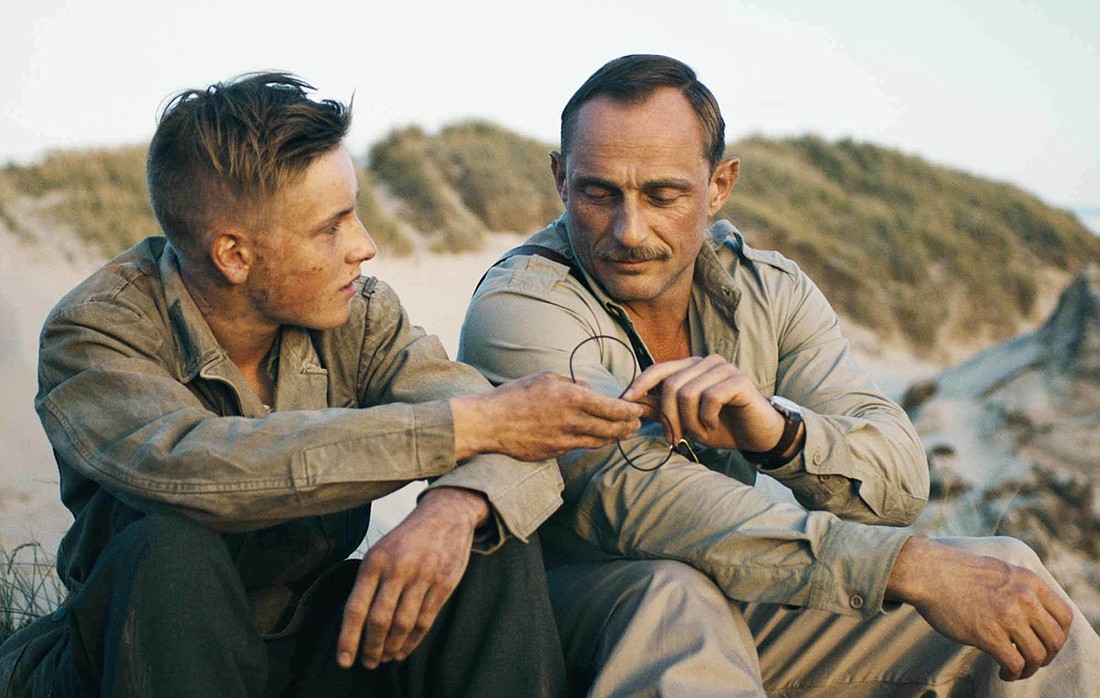- May 31, 2025
-
-
Loading

"Land of Mine" sheds light on a little known historical tragedy which took place shortly after WWII in Denmark. It explores the dilemma of turning off the hate required to kill during war once it's over.
In May 1945, five months after Germany's surrender, German POWs were put to work diffusing their own land mines on the coast of Denmark. With very little training, young boys were forced to pay a huge price for the occupation of a country that now sought evil retribution. They were promised they would, "either die or be badly injured."
Another promise made was that once the 45,000 mines were removed (within a time frame of three months), the boys could return home. Sergeant Rasmussen (Roland Moller) makes this pledge in good faith, but in the meantime he treats them worse than animals, denying them food and locking them up at night in a shed. As the carnage grows amongst his wards, Rasmussen seems to realize that they, too, are causalities of war. And when he discovers that the Danish army has no intentions of allowing the broken boys to return home, he makes a startling move in their behalf.
Danish director-writer Martin Zandvliet treads some very tricky waters in this emotionally charged film. And he does so by never stooping to stereotypical role-playing, as one might expect. The evolution of Rasmussen is one of conflict within himself. While the boys are depicted with almost a sheer innocence, having never participated in Nazi atrocities, we view them as unsuspecting pawns thrust into the madness of war.
Cinematographer Camilla Hjelm has created a visual dichotomy by pairing breathtaking coastal beaches with the horror of exploding bodies strewn upon them. It's a disturbing balance of naivete with the profane. To know that the film was shot at historically accurate locations makes the viewing experience even all the more real.
Given that the Geneva Conventions prohibits POWs from performing dangerous and/or unhealthy labor, what occurred on the Danish coast in 1945 was a despicable war crime. But was it anywhere near the level of horror that the Nazis inflicted? "Land of Mine" chooses not to measure any level of accountability. Instead, it examines losing our humanity and the arduous journey we must take to retrieve it.